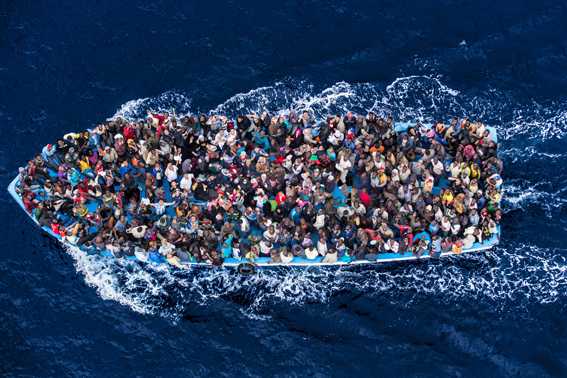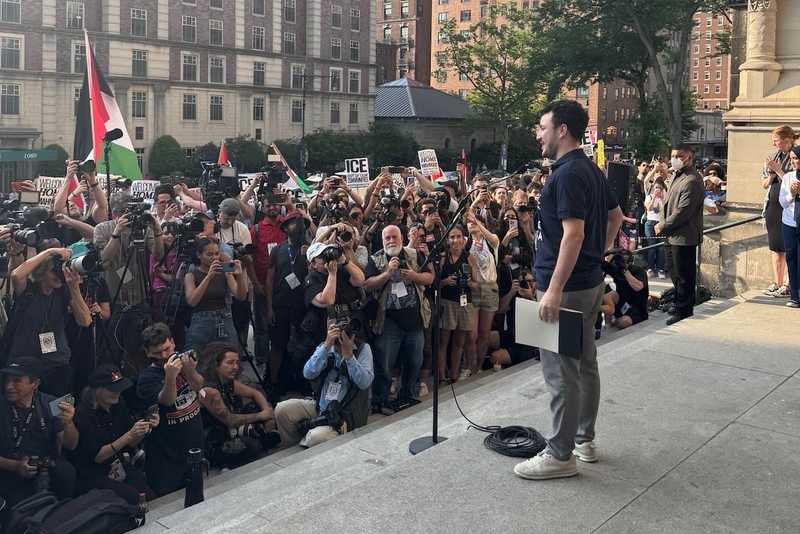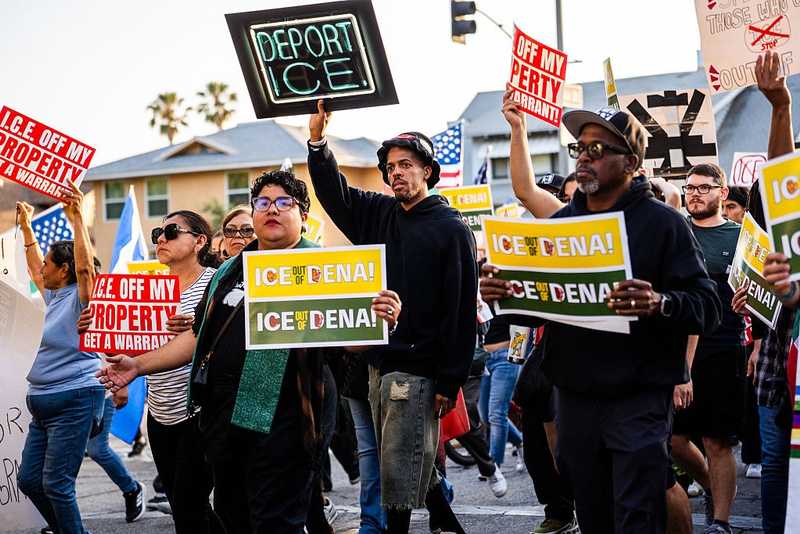
Although crossings between Africa, Asia and Europe are as old as settlement along its shores, in the modern era, restrictions on travel and violent border security have turned the sea into a mass graveyard, where countries would rather return vulnerable people to death or near-certain slavery than allow for a measure of safety. Almost all of Europe is complicit in turning people away at their most vulnerable, including by intimidating boats defying the fortress that Europe built.
The deaths on the Mediterranean Sea have wrongly been framed as an African, a Syrian or even a Libyan crisis; as being about migration. While Europe has been quick to hijack the discussion and declare this a crisis of the European border, in fact it’s a crisis of the European state—one that has everything to do with the history of conflict and division within that continent. So much of how the world’s states function and fear comes from Europe’s bloody and violent history.
There are three main routes that will get you across the Mediterranean from Africa or Asia into Europe. These routes have been used for almost as long as travel across the Mediterranean has been documented. Scattered across the coastline is the detritus of ancient civilisations that fed into the birth of the modern age—Sparta in Greece, Carthage in Tunisia, Alexandria in Egypt, historical Athens and Rome—telling a story of societies that have been in constant if not always friendly contact with each other. If Western philosophy is a cornerstone of Western politics and society, it’s worth noting that many of the most notable products of Western philosophy are in fact products of the free movement of people and ideas across the water. Augustine of Hippo was an African man whose theology and philosophy are at the heart of modern Christianity and Western political thought. His theory of the just war is still taught in international relations and political science classes all around the world. Historians say that Augustine was Berber—from a pastoralist people—and so migration and mobility were central to his worldview even before he moved to Rome and Milan to continue his work. Movement has always been central to the Mediterranean region’s intellectual fertility, and modern hostility to it is only contributing to its decline.
It’s not that there has never before been hostility between the communities of the Mediterranean. Remember: Europe has always been a violent place. But as Europe has coalesced into an enormous social and political project, the scope of the damage has become greater. Bertrand Russell once wrote that leaders have always been stupid, but they have never been quite so powerful before; he was writing of the period between the world wars, but the same can be said today. The human capacity to inflict harm is greater than it has ever been, which makes historical tensions and hatreds all the more dangerous. Alarming numbers of people are now dying while using routes that have been in place for hundreds of years.
The 1990 Schengen Convention found a way to keep both the historically open and the historically closed countries happy, despite the new system abolishing internal visa controls and agreeing common visa policies (to reduce bureaucracy at many European countries’ borders). The compromise was an invasive, humiliating and even violent process of scrutiny for people coming from countries considered to be too poor, and thus a risk for immigration.
Humanitarians will tell you that one thing the Schengen system did with alarming efficiency was to close off all humane routes into Europe for citizens of these unwanted countries who could not meet the required thresholds. For a young man or woman from Senegal or Sudan who couldn’t find work in a village ravaged by climate change, or a collapsing economy, the Schengen regime left no legal way to seek low-wage work in Europe. Of course, it was not ideal that people had been boarding flights to Europe and then claiming asylum or overstaying their tourist visas. But at least they’d been arriving alive. What the architects of Schengen seemed to ignore was the sheer number of people who would now be driven towards smugglers and clandestine routes instead. When people see their options as certain death while standing still, versus a minute chance of success if they move, they will move.
Whenever I make this argument to Europeans, I always get a version of “So why don’t the people in those countries just take charge of their politics and make their countries better?” Of course, that would be the better and even the ideal option. But go back to Wallerstein and the use of borders to export instability out of the West. Look at the twentieth century in Africa alone. First the violence of colonisation and invasion. Then the wide-spread, targeted assassination, with the collaboration of Western governments, of visionary leaders like Thomas Sankara and Patrice Lumumba. Then decades of active economic interference and sabotage, culminating in the Structural Adjustment Programs of the late 1980s: loans from the IMF and World Bank to economies in crisis, on condition of structural reforms. Now, we have digital colonialism and Western governments providing cover for private Western corporations to interfere in the politics of developing countries. Do you still think it’s fair to place responsibility on civilians for choices made by states? Why don’t the countries manufacturing and selling weapons to poorer governments just stop doing it? Why don’t governments just stop supporting dictators? Emigration doesn’t happen in a vacuum.
The number of people taking to the seas to get to Europe hasn’t just been increasing because there are simply more people. It’s because legal and safe passage to Europe has disappeared, for all but a small sliver of the world’s population.
PI council member Nanjala Nyabola is a writer, independent researcher, and political analyst. Her work focuses on conflict and post-conflict transitions, with a focus on refugees and migration, as well as East African politics generally. Her latest book, Travelling While Black: Essays Inspired by a Life on the Move, was published on November 19th.
Photo: vfutscher / Flickr







